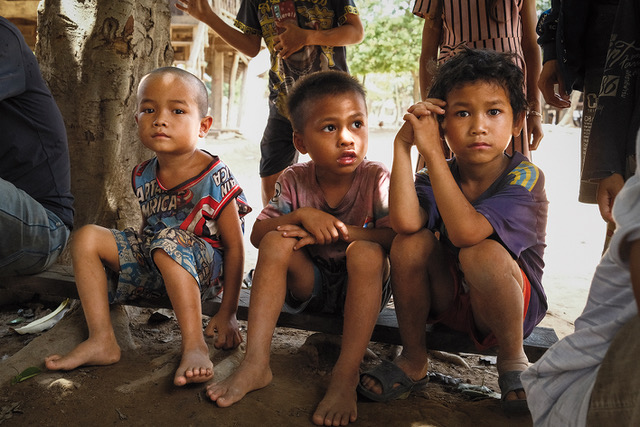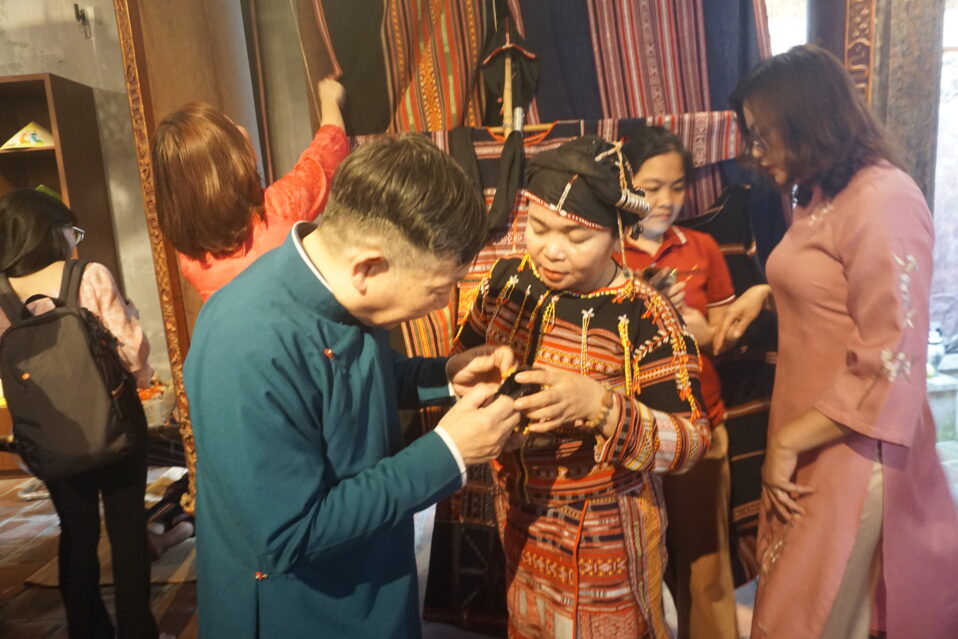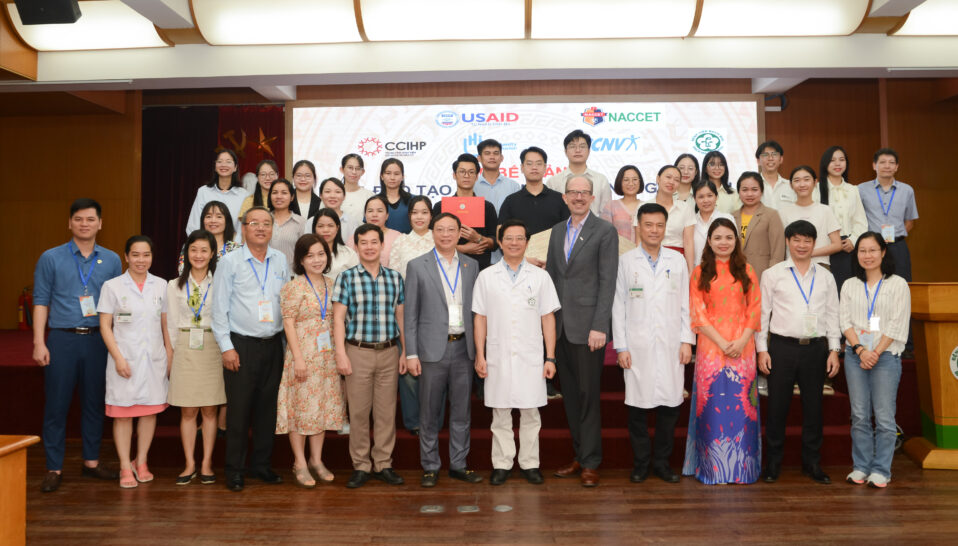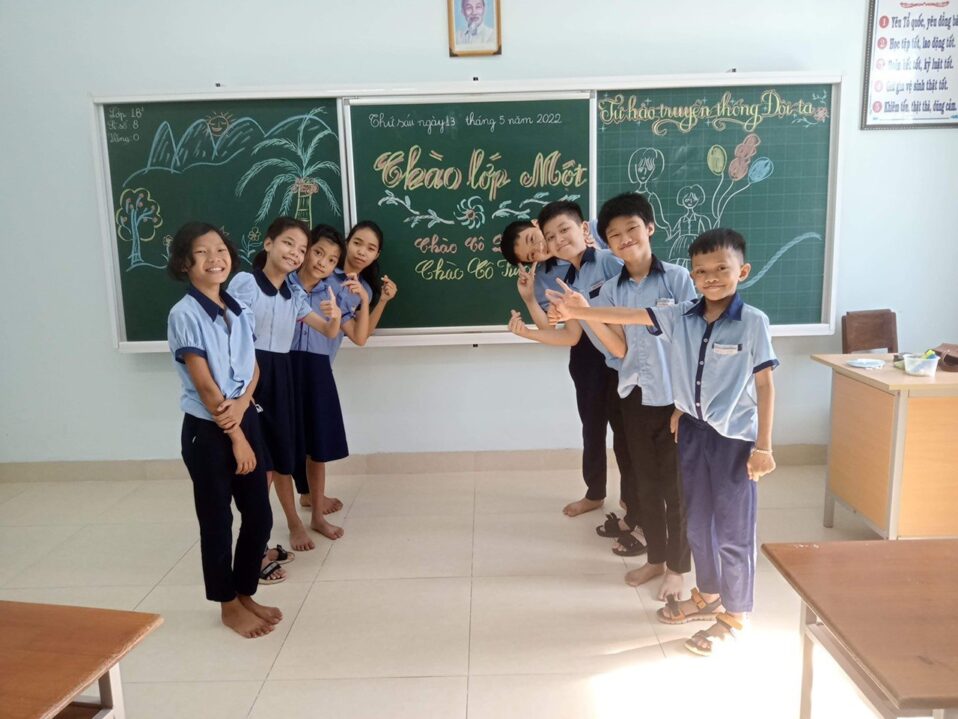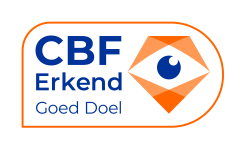Field visit to Nong and Sepone in Laos: What wonderful developments!
Positive developments in Nong and Sepone
Last May, I traveled to Laos together with Marloes Zwagerman from the AFAS-Foundation to visit the municipality of Nong and Sepone with my Laotian colleagues -Joy, Fine, Sivone and Done. We particularly visited the villages where MCNV and the AFAS Foundation support the Mother & Child program. A special visit because a private foundation such as the AFAS-Foundation has never visited the program before. The responsibility for clean water, latrines, medical care and attention to nutrition is taken seriously not only by the local partners we work with, but especially by the villagers themselves. They have
gained the experience that they can contribute to these positive developments themselves and that is the most important condition for success.
Nong will continue on his own from 2025
In 2006 – at the request of the border province of Savannakhet (in Laos) – we started providing assistance to the municipality of Nong. The activities at that time were mainly aimed at improving food security. Gradually it became apparent that more was needed and so we started looking for new financing. In 2016, we submitted an initial application to the AFAS-Foundation to realise multi- year plans for food security, better child health and structural changes for the families in Nong. The application was honored and the program was successfully implemented. A second application followed in 2021 and we are now in the final year of our second partnership. Bringing about changes requires a lot of patience and a lot of money, this is a good example of that. At the end of 2024, we will transfer responsibilities to our local Laotian partners in the municipality and the province. We have thus achieved our goal in Nong and we are convinced that the program with all its activities is strongly rooted and will continue to develop.
Sepone would like our support and cooperation for the coming years
In the Municipality of Sepone, we started the Mother & Child program in ten villages almost three years ago, a similar program to that in Nong. Developments are moving rapidly and major steps have been taken. The villages we visited looked clean, equipped with latrines, running water, and vegetable gardens. Clean water in particular is such an important basis for health and hygiene and makes growing more food close to home possible. We received a great contribution from our
MCNV-donors for this purpose in December last year and this money was well spent!
Our question to you
The head of the villages, village health workers and other key figures explained in detail what has been done, how people experience it, how important knowledge and skills are, that there is more shared responsibility and of course they also indicated what else is needed.
We therefore want to continue with the activities in Sepone in the near future. We are currently working on a new application for financial support from the AFAS-Foundation. Your contributions are also indispensable.
That is why we ask in this newsletter to make an extra donation to continue these activities in the field of water and sanitation, care for mother & child and food security.
Many thanks in advance for the extra gift,
Karin Vlug, also on behalf of Joy, Fine, Sivone &Done
Independent future
The experience that MCNV has built up with successful projects means that the government in Laos is gradually showing the willingness to continue and co-finance these activities. It is one of the objectives and principles of MCNV that government involvement in more remote areas increases and that the government increasingly recognizes the importance of a healthy population, even where people are difficult to reach for existing national programs. such as vaccinations. With our
interventions, MCNV wants to bring about change in the health system.
By investing now in training and resources, developments can be sustainably integrated into the existing (health) system,
ultimately financed by the local and national Lao governments.
Vacancy: Member of Supervisory Board
MCNV is looking for a new member of the Supervisory Board. The task of the Supervisory Board is to ensure that the efforts of the MCNV make an optimal contribution towards the mission of MCNV:
“To contribute to the structural improvement of the health of disadvantaged groups in South East Asia by developing evidence-based participatory models that build capacity and focus on the major determinants of population health.”
More details are available in the following PDF file:
Vacancy - MCNV supervisory board memberVietnamese Farmers Gain Farming Insights from Holland
A delegation from the Vietnam Farmers’ Union (VNFU) recently embarked on a study tour to the Netherlands, as part of the Tropical Fruit Quality Project. This visit, which took place from June 7th to 15th, 2024, aimed to equip Vietnamese farmers with the cutting-edge tools and techniques needed to navigate the challenges of climate change and propel their agricultural practices to the forefront of global efficiency and sustainability.

The delegation including representatives of VNFU and MCNV visits Eurofins Agro.
The delegation’s itinerary delved deep into the diverse aspects of the Dutch agricultural sector, including the integration of advanced technologies into agricultural processes, the intricacies of international agricultural logistics; alignment of fruit production practices with the requirements of international importers and experience sharing on climate-smart solutions.
The delegation was led by Ms. Bui Thi Thom, Vice President of the VNFU Executive Committee, comprising representatives from the Farmers’ Unions of project provinces (Dong Thap, Ben Tre, Long An, and Binh Thuan) alongside MCNV’s project coordinator.
 |
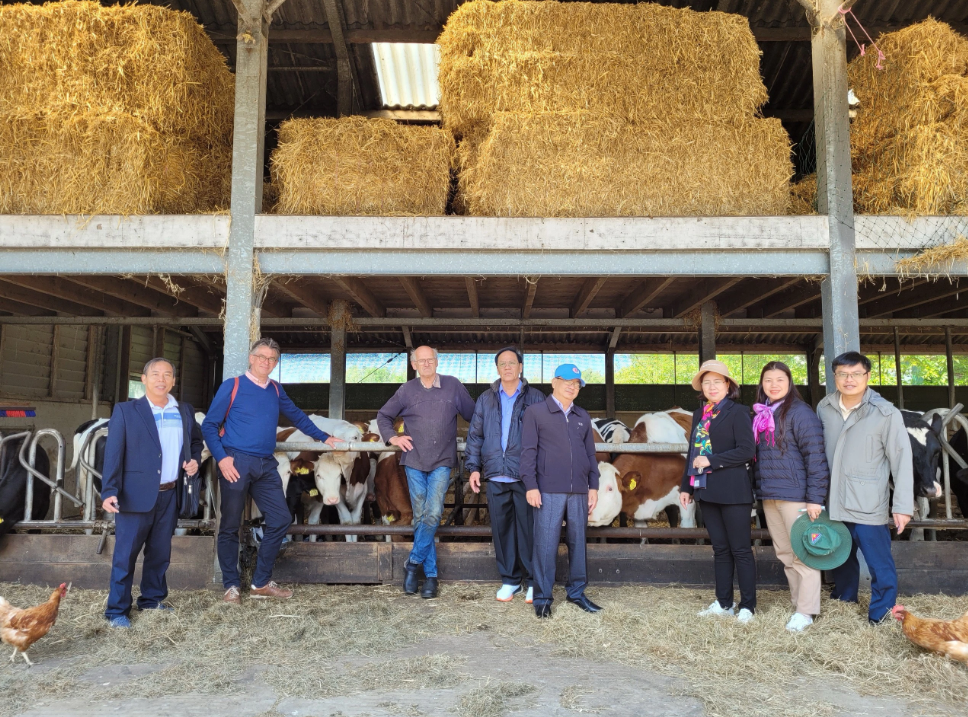 |
The delegation’s journey began at the Hoeve Ackerdijk multi-purpose organic farm in Delft on June 7th. This model farm showcased the transformative potential of organic practices, demonstrating positive environmental impacts like improved water quality, increased biodiversity, and reduced carbon emissions. Additionally, the farm impressed with its efficient irrigation technology, advanced disease management strategies, and the combination with other services that foster farmers-citizen connection, such as a childcare facility, a nature conservation zone, and renewable energy generation.
This visit served as a testament to the high level of technological adoption by Dutch farmers and their commitment to meeting market demands while safeguarding the environment.
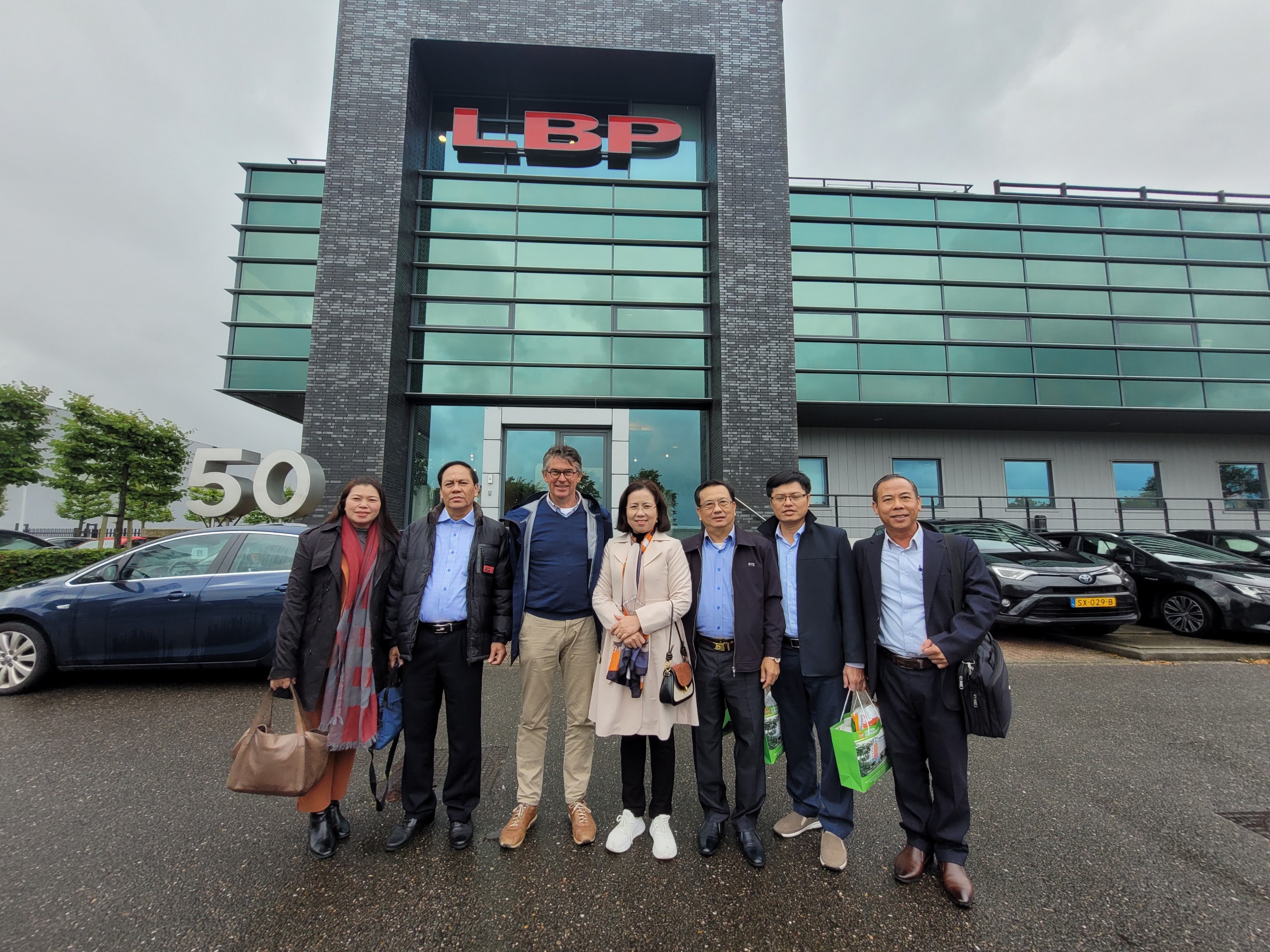 |
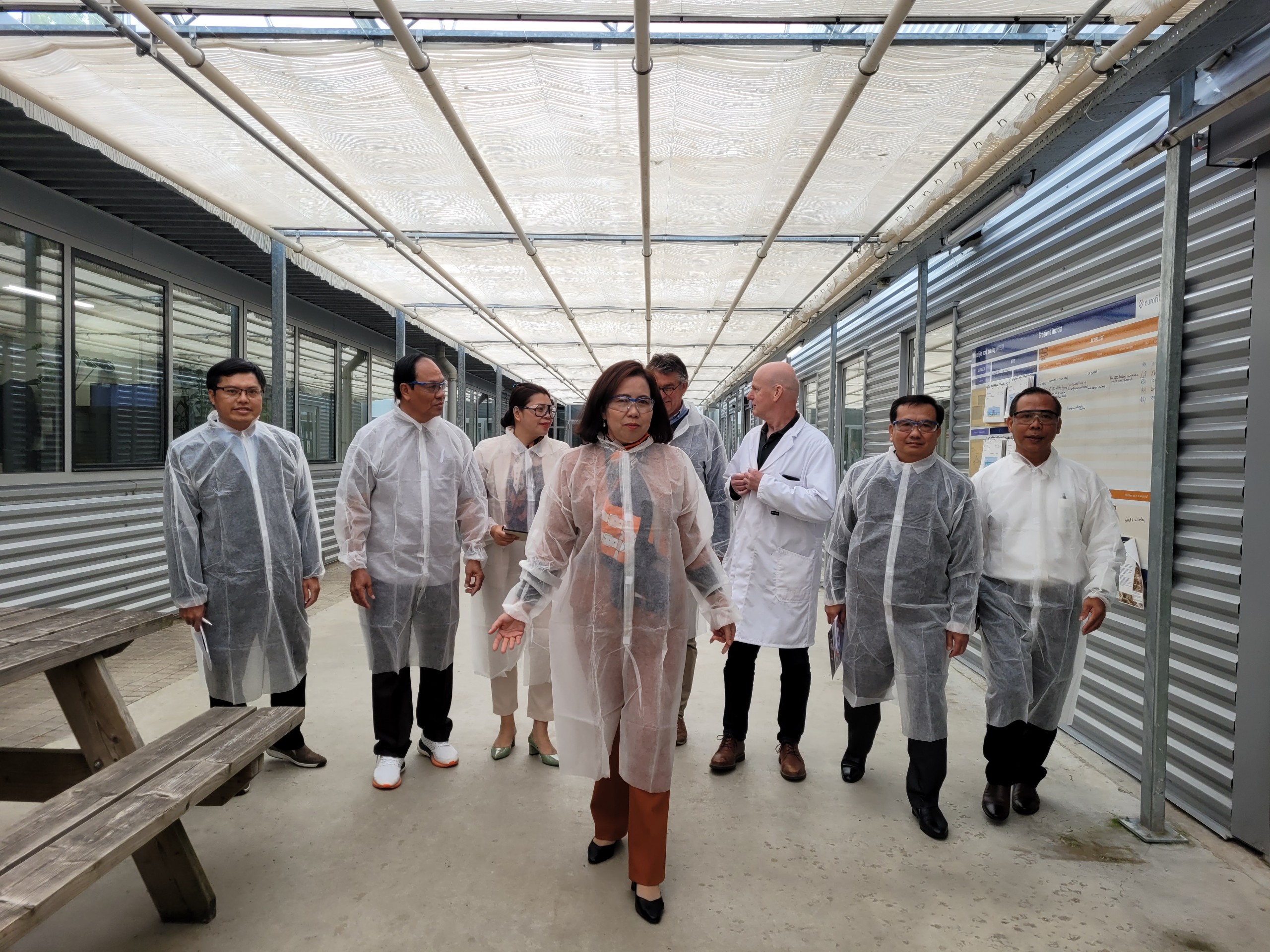 |
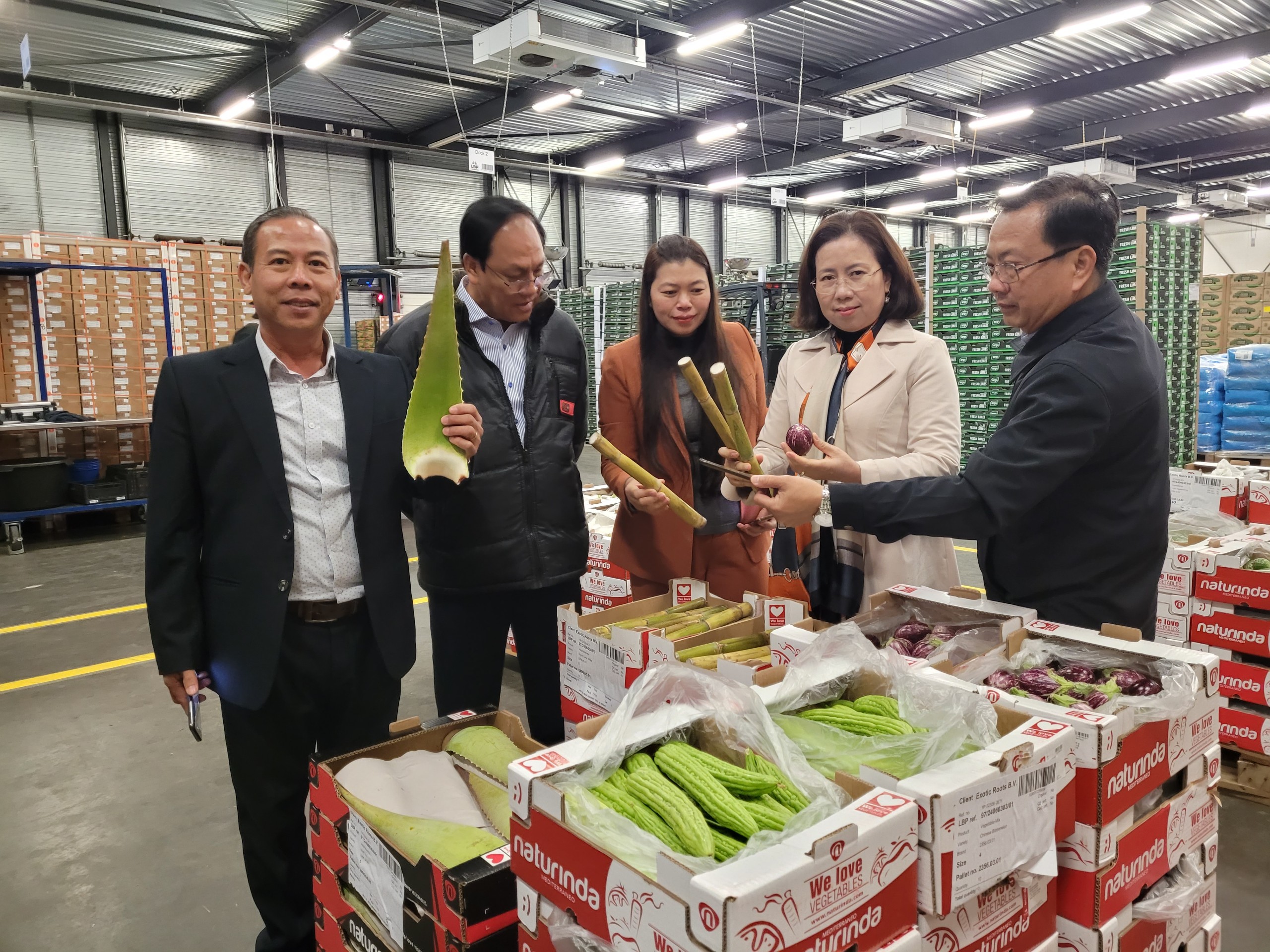 |
 |
On June 10th, the delegation gained insight of the international agricultural logistics and market demand through a meeting with the Logistic Business Partners (LBP) Company in Rotterdam. The delegation learned about post-shipment vinegar ripening and packaging systems, quality control measures.
A fascinating fact was discovered since many agricultural products imported through LBP, such as sugarcane, chili peppers, turmeric, and aloe vera – the crops that Vietnam possesses vast potential to export. This underscored the importance of understanding import market demands and developing effective marketing strategies for Vietnamese farmers to tap into the global marketplace.
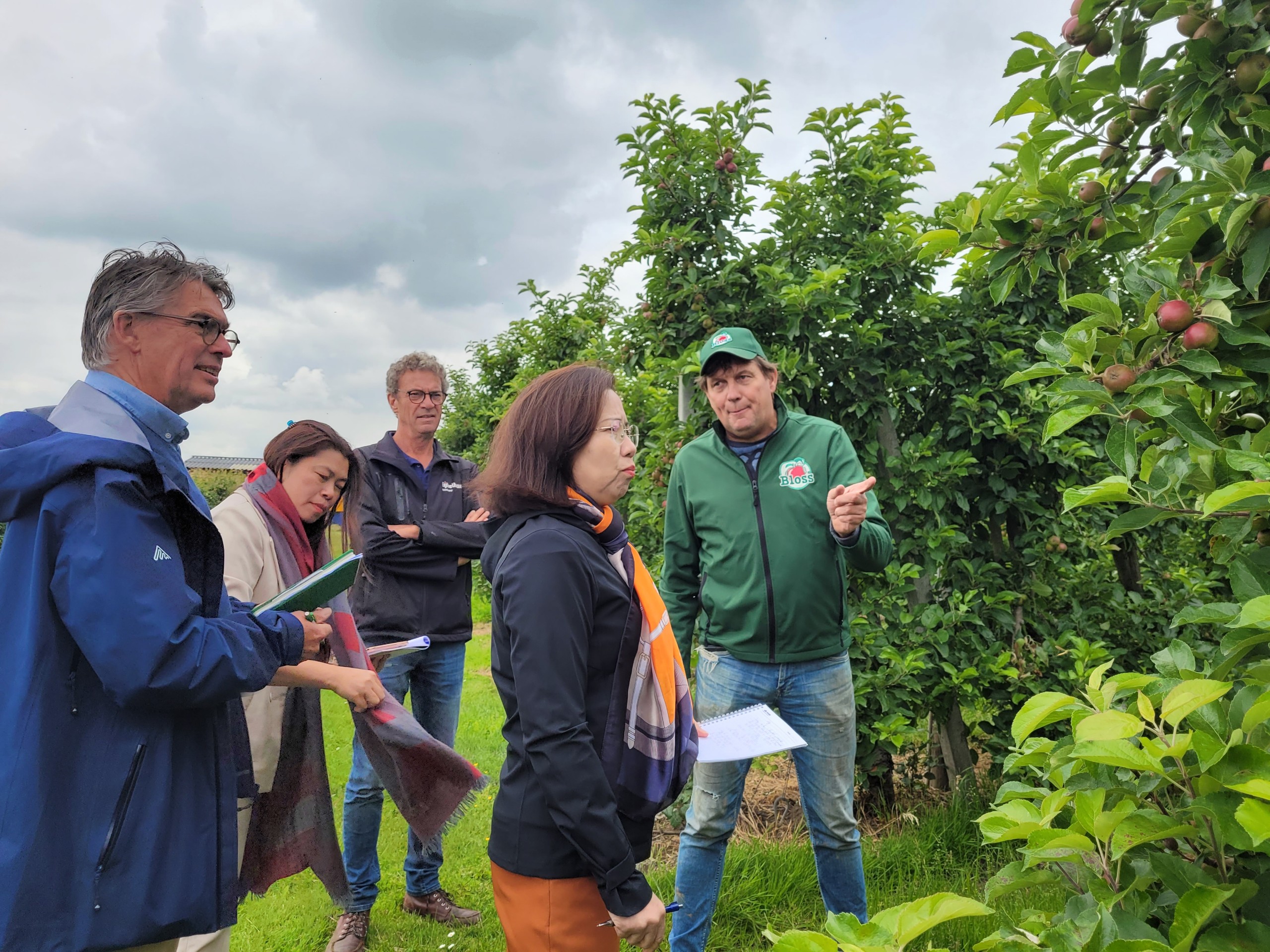 |
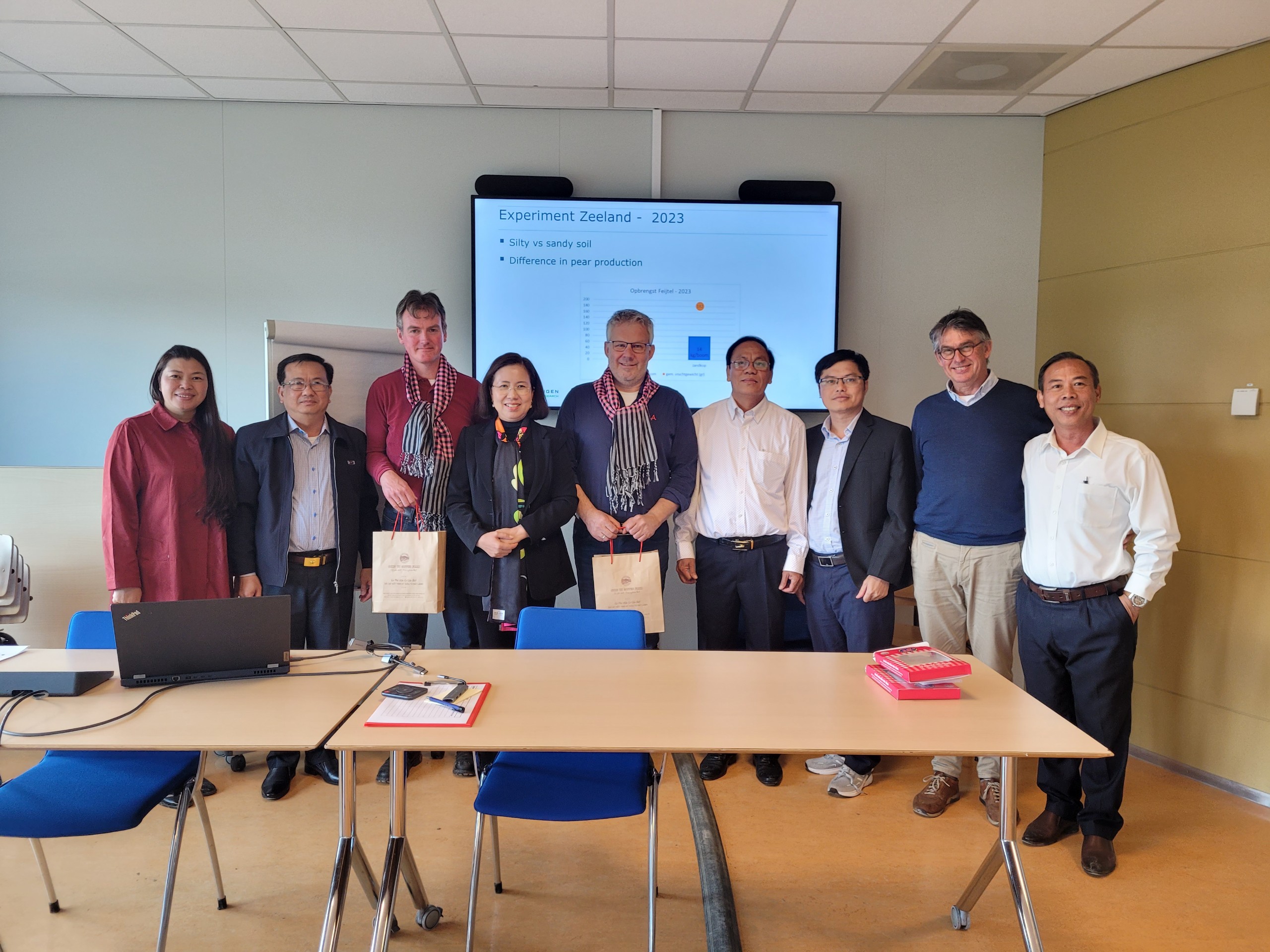 |
The delegation’s quest for knowledge continued at the Wageningen University & Research on June 11th to learn about plant protection solutions for fruits based on flexible greenhouses, sensor-based irrigation management technology, application of satellite data, soil scanning, climate data and weather forecasting.
On the same day, the delegation worked with RMA Company to learn about irrigation management technology based on soil moisture sensors, weather stations, and data application for effective irrigation advice. These technologies are well-suited for large cooperative models and for high-value crops.
On June 12, the delegation worked with Eurofins Agro in Wageningen. The center provides services to support farmers and growers in improving their farming systems and assists food and feed companies in sustainable production. In particular, Eurofins Agro has strengths in in-depth soil health research and deep insights to support more sustainable farming practices.
This is also a place where soil analysis techniques are continuously developed, including near-infrared spectroscopy (NIRS) technology or the detailed determination of parameters such as total organic carbon in soil, soil fertility, nutrient reserves, pollutants in soil and in crops, as a basis for guiding farmers in making decisions and minimizing risks.
In the time to come, the project will continue to collaborate with the VNFU to expand Eurofins’ soil testing services to more farmers in the project’s provinces, making it easier for farmers to access this valuable technology. This is the most fundamental scientific foundation for farmers to understand and step by step apply advanced knowledge to change agricultural cultivation methods.
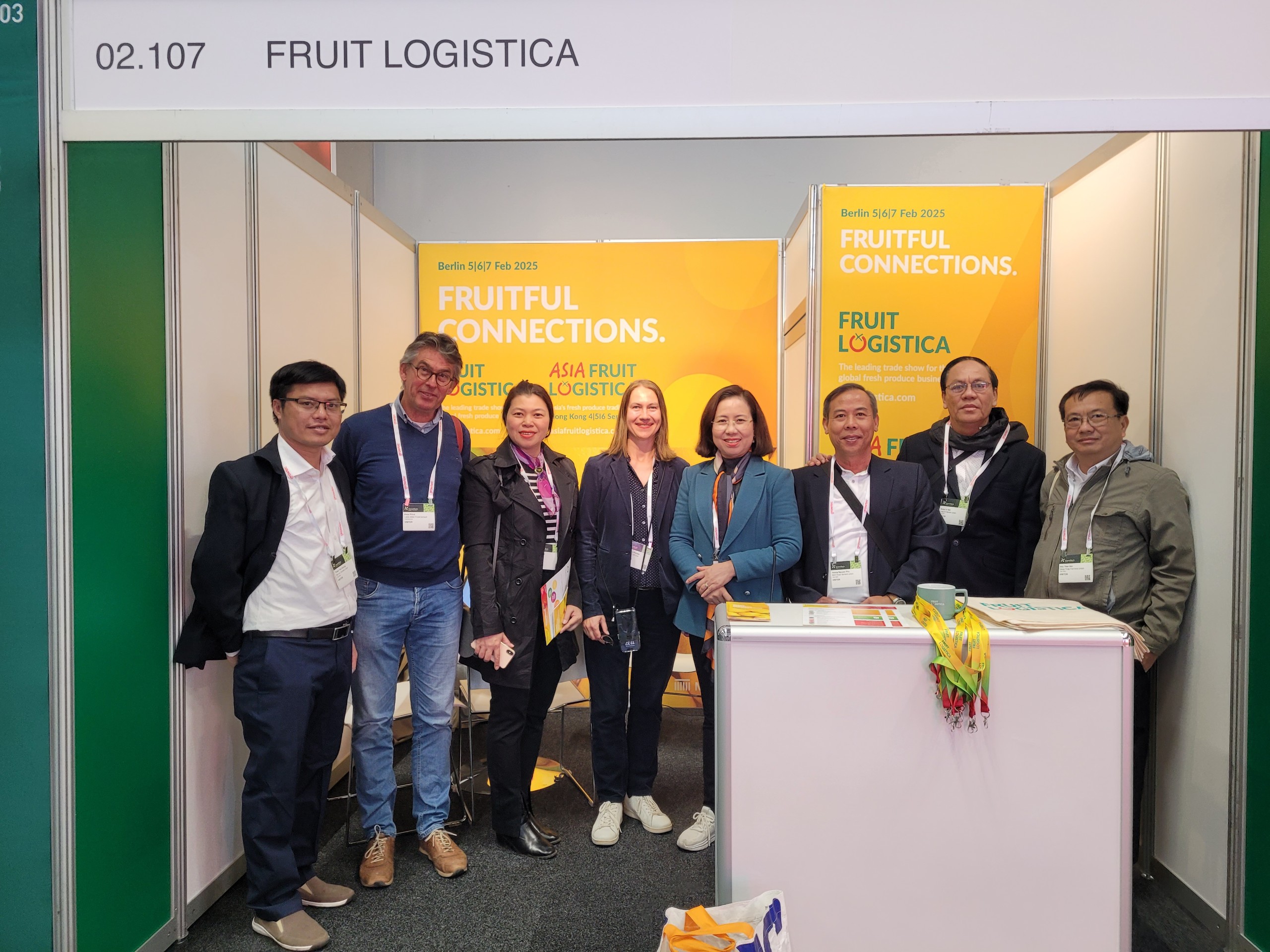 |
 |
On June 13, the delegation visited the Greentech exhibition, learning about and visiting booths introducing high-tech solutions in agriculture such as sensor systems, automatic fertilization, vertical racks, transportation management systems, automatic product sorting systems, drones for farm management, vertical garden systems, hydroponic systems, and farm monitoring systems. The delegation visited and learned about the booth introducing Fruit Logistica fair – a trade “bridge” attracting a large number of fruit importers and exporters from around the world held annually in Berlin, Germany in February.
Ms. Bui Thi Thom, VNFU Vice President, emphasized the importance of knowledge sharing and practical application: “Farmers who can witness the results of these high-tech models firsthand will be more receptive to adopting them in their own practices. The VNFU is hopeful that collaboration with the Netherlands can lead to the establishment of pilot projects in Vietnam, allowing farmers to gain firsthand experience and raise awareness of the transformative potential of agricultural technology.”
According to Vice President of VNFU, the Vietnamese government, recognizing the critical role of technology in ensuring farmer well-being and sustainable agricultural development, strongly encourages technology adoption in the sector. The VNFU, representing over 10 million members and farmers, plays a crucial role in promoting and facilitating the integration of science and technology into agricultural practices.
Ms.Bui Thi Thom also emphasized that to enhance the effectiveness of communication and assist farmers in adopting new technologies, particularly soil testing. As part of the Tropical Fruit Quality Project, VNFU, through collaborative efforts with government agencies, businesses, and enterprises, will organize promotional and training activities to further empower Vietnamese farmers.
The Tropical Fruit Quality Improvement Project is financially sponsored by the Netherlands Enterprise Agency, implemented in 04 provinces of Binh Thuan, Long An, Ben Tre and Dong Thap. The Medical Committee Netherlands – Vietnam (MCNV) plays an important role in coordinating and facilitating the flow of advanced technology and information from leading EU technical partners to Vietnam, that benefits Vietnamese farmers and fruit exporters./.
MCNV promotes communication on rehabilitation

Delegates at the workshop held in Quang Tri, May 23th, 2024.

MCNV Country Director, Mr.Pham Dung, MD, MPH, provides an overview of rehab.

Dr.Ha Chan Nhan, MD, Head of the Rehabilitation Department, Hue University of Medicine and Pharmacy, speaks about Physical Medicine.
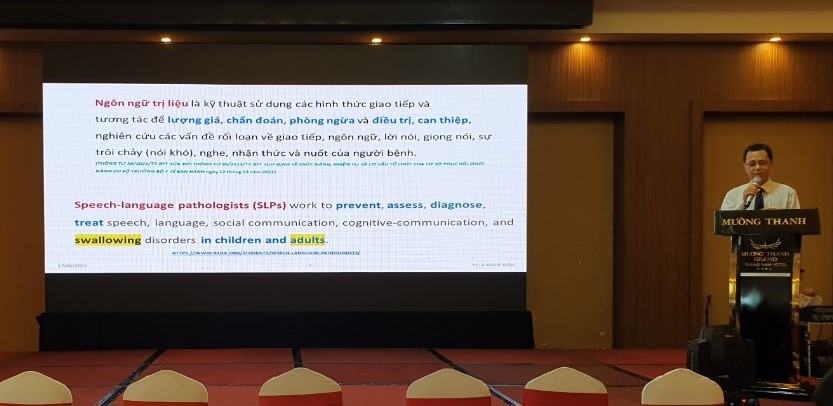
Dr.Le Khanh Dien, Head of the Rehabilitation Faculty, An Binh hospital, speaks about the role and clients of Speech and Language Therapy.

Ms.Le Thi Kim Phuong, Master of PT, Lecturer – Hai Duong Medical Technical University, speaks about the role and clients of PT
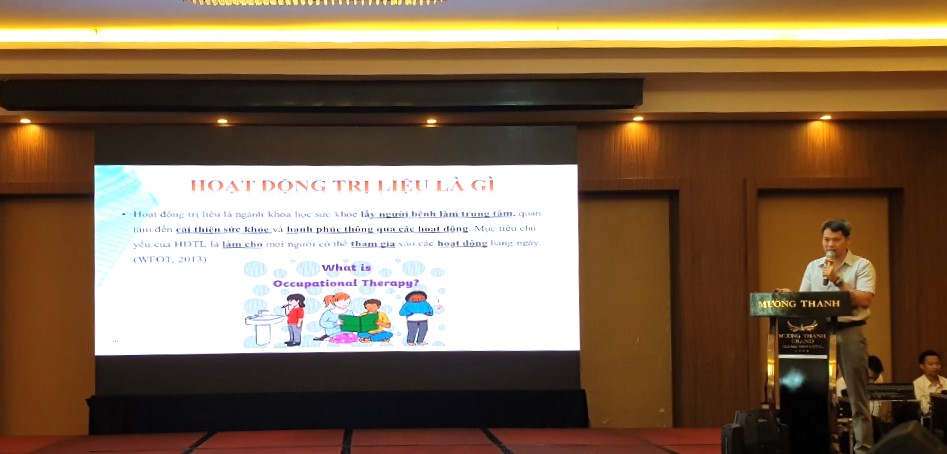
Mr. Nguyen Khac Tuan, MOT, Lecturer, Hai Duong Medical Technical University, speaks about the role and clients of OT.

Panel Discussion
Bringing Xi Thoai Brocade to Hanoi: A Celebration of Cultural Heritage
For the first time ever, stunning textiles from the traditional Xi Thoai village ( Dong Xuan district, Phu Yen province) are on display in Hanoi in an exhibition themed ” Introduction of Xi Thoai Brocade Village” held at the Hanoi Old Quarter Heritage Information Center (28 Hang Buom Street, Hoan Kiem District) from April 20th, 2024 to May 15th, 2024.
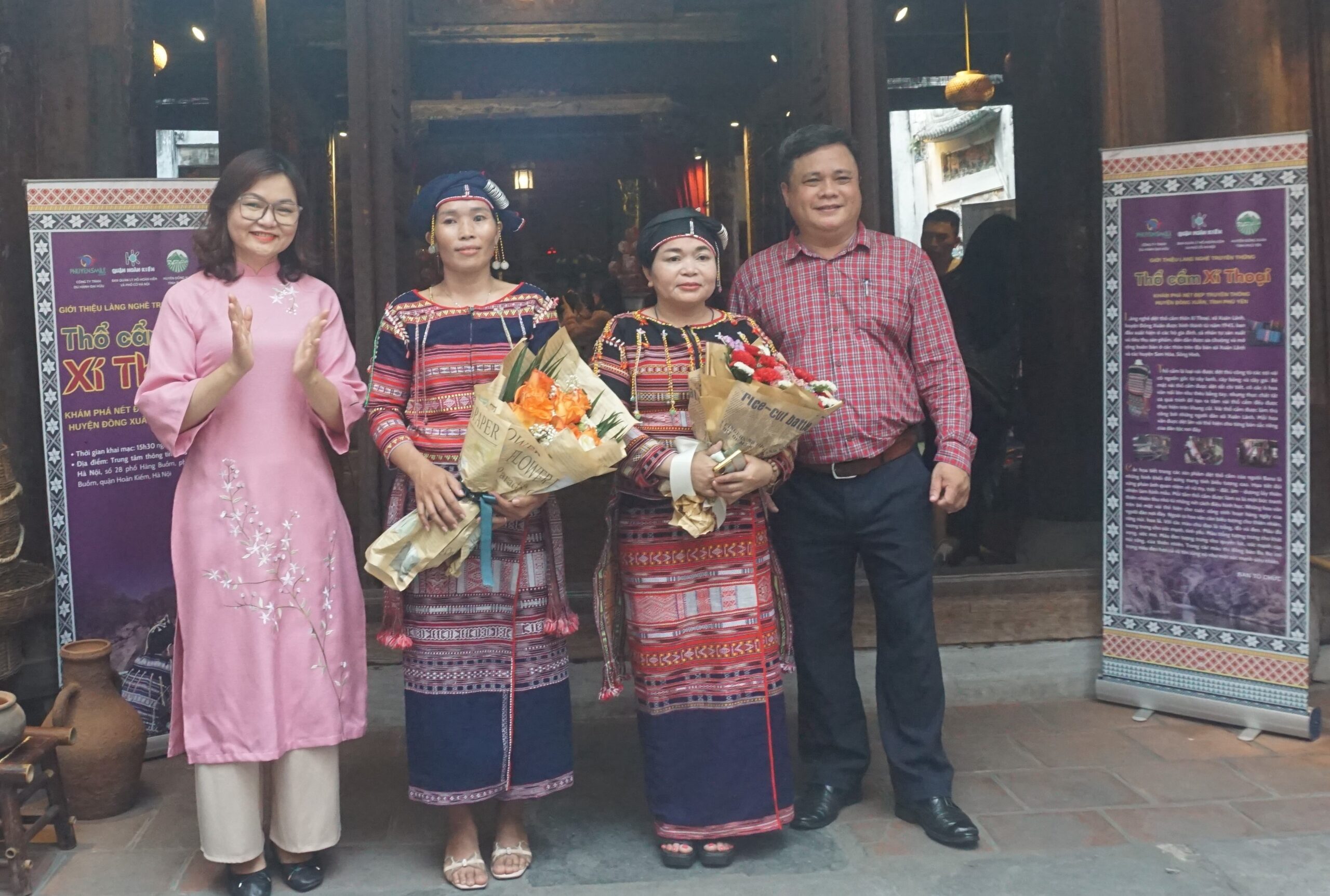
Ms. Tran Thi Thuy Lan, Deputy Head of the Hanoi Old Quarter Management Board, and Mr. Dam Dai Huu, Director of Dai Huu Travel Co., Ltd., presented bouquets of flowers to two esteemed artisans, Ms. Le Thi Thu Dien and Ms. So Thi Chuyen.
On the afternoon of April 20th, 2024, thanks to MCNV’s sponsorship, two talented artisans named Le Thi Thu Dien and So Thi Chuyen represented the production groups at the exhibition. They gave amazing demonstrations of their exquisite brocade weaving skills and brought to the event a whole range of beautiful, handcrafted brocade products, including traditional outfits, shawls, drawstring bags, pen bags, cellphone bags, etc.
Nestled in the commune of Xuan Lanh commune, Dong Xuan district, Xi Thoai village is home to 219 households, primarily of the Ba Na ethnic group (accounting for 95%). The village’s brocade weaving craft boasts a rich history, spanning nearly 80 years of development. Originating from individual households producing for self-consumption, Xi Thoai brocade gradually gained recognition for its unique beauty, becoming a sought-after item not only within Xuan Lanh commune but also in the neighboring districts of Son Hoa and Song Hinh in Phu Yen province.
A distinctive feature of Xi Thoai brocade lies in its intricate weaving technique, creating raised patterns that resemble embroidery, despite the entire weaving process is executed on a loom. The craft demands immense concentration, as the artisan must memorize each thread and pattern to correctly switch between colored yarns. Any errors or omissions during weaving necessitate instantly unraveling and redoing the affected section.
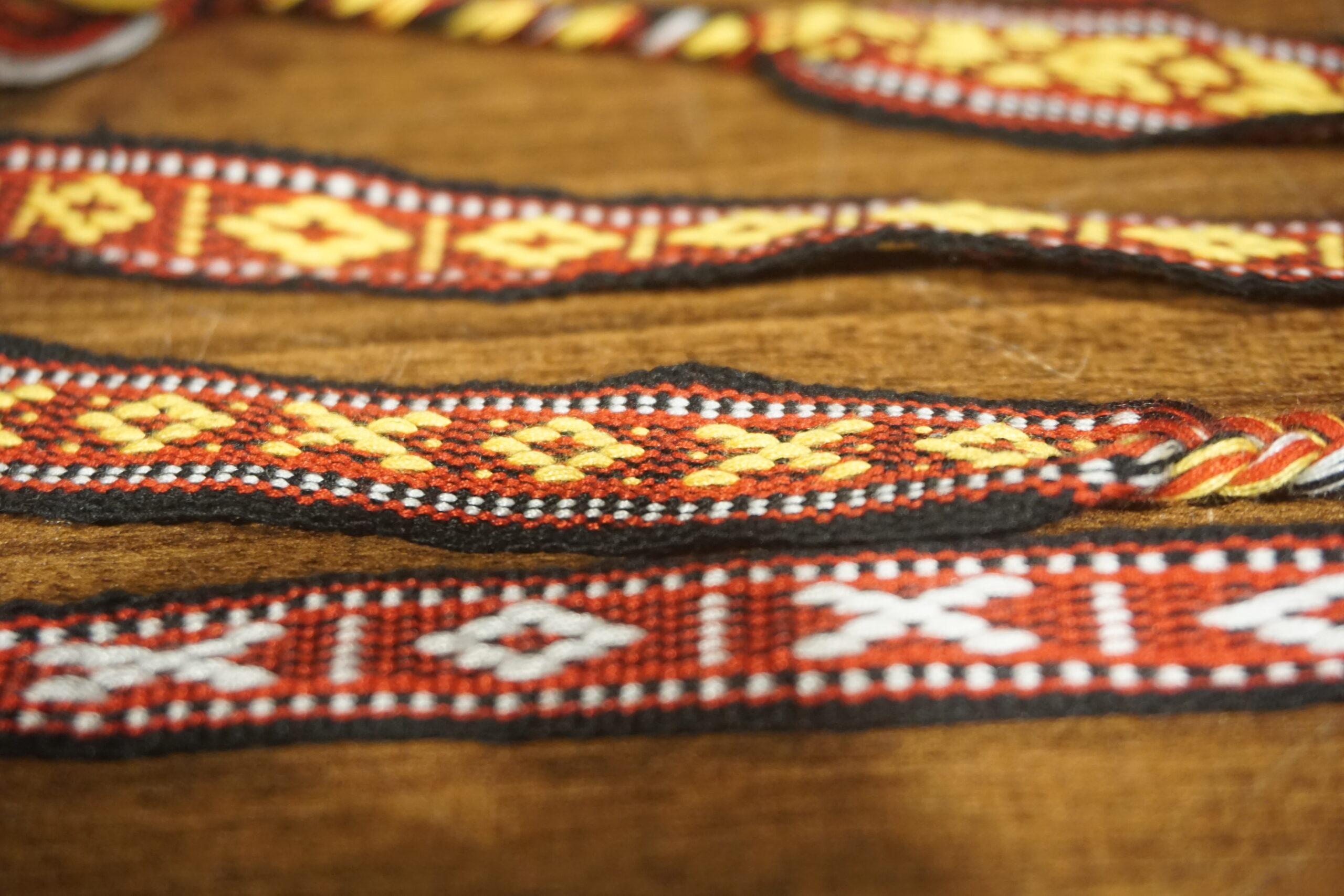
Adorning Bana brocade are recurring symbolic motifs inspired by nature, reflecting the people’s worldview encompassing the cosmos, heaven and earth, yin and yang.
Adorning Bana brocade are recurring symbolic motifs inspired by nature, reflecting the people’s worldview encompassing the cosmos, heaven and earth, yin and yang, mountains, fauna and flora. Each brocade piece serves as a miniature tapestry depicting the vibrant natural world and scenes of daily life. The primary colors employed in Ba Na brocade are white, red, and black. These colors carry profound meanings: red representing aspiration, vigor and love; white embodying hope and dreams; and black symbolizing the superpower of the mountains and forests, additionally revered as the most sacred color among the Ba Na people.
In recent years, with traditional crafts at risk of being forgotten, local authorities, businesses, organizations, and individuals have undertaken concerted efforts to preserve and promote Xi Thoai brocade. As part of the project Boosting income and jobs for poor ethnic women in Dong Xuan district implemented by MCNV and co-funded by GSRD foundation, the Xi Thoai brocade tradition is getting a major boost. MCNV has been supporting the craft through things like setting up cooperatives, sending artisans on learning trips to other provinces, offering skill-building workshops, providing equipment, and helping connect brocade makers with businesses to sell their products. The brocade weaving cooperative currently has 22 members, and is expecting to recruit more members.
These initiatives have contributed significantly to the revitalization of Xi Thoai brocade, ensuring its continued existence as a testament to the rich cultural heritage of the Ba Na people. The preservation of this traditional craft not only economically and socially empowers the Ba Na women but also safeguards an invaluable piece of Vietnam’s cultural tapestry.
“Brocade weaving has been my passion since I was a teenager. Recently, thanks to a project-sponsored learning trip to a cooperative in Quang Nam province, I’ve gained the skills to create new, modern products like these small bags. Before, we primarily focused on larger items like clothing and shawls. I’m thrilled to bring these innovative pieces to Hanoi for the first time! Upon returning to my village, I’ll continue to improve my skills, make more brocade products, and share my knowledge with the next generation”, said artisan Le Thi Thu Dien.
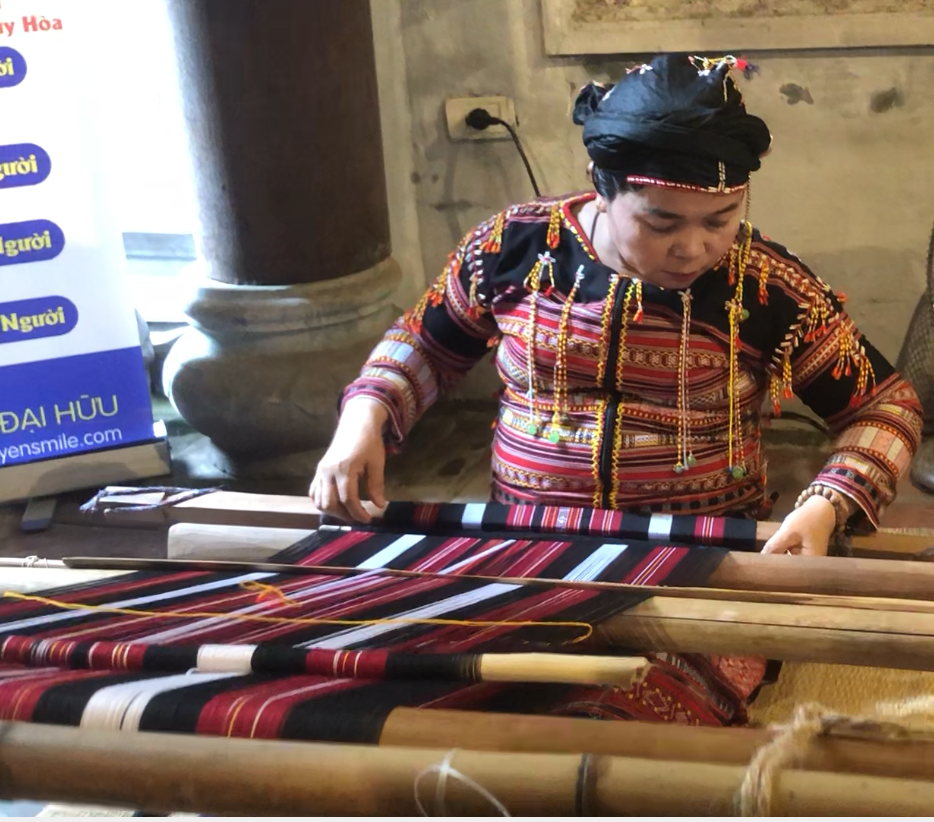
Artisan Le Thi Thu Dien is passionate for brocade weaving.
The Xi Thoai Brocade Introduction event in Hanoi stands as a testament to the ongoing efforts to preserve and promote Vietnam’s rich cultural heritage. By bringing together artisans, cultural experts, and the wider public, the event fostered a deeper appreciation for the unique traditions and artistry of Xi Thoai brocade.
During the event’s opening ceremony, Ms. Tran Thi Thuy Lan, Deputy Head of the Hanoi Old Quarter Management Board, emphasized the importance of preserving and promoting traditional crafts like Xí Thoại brocade. She noted that this was the first time the Hanoi Old Quarter Management Board had collaborated with a Central region province to organize such an event, underscoring the significance of cross-regional cultural exchange.
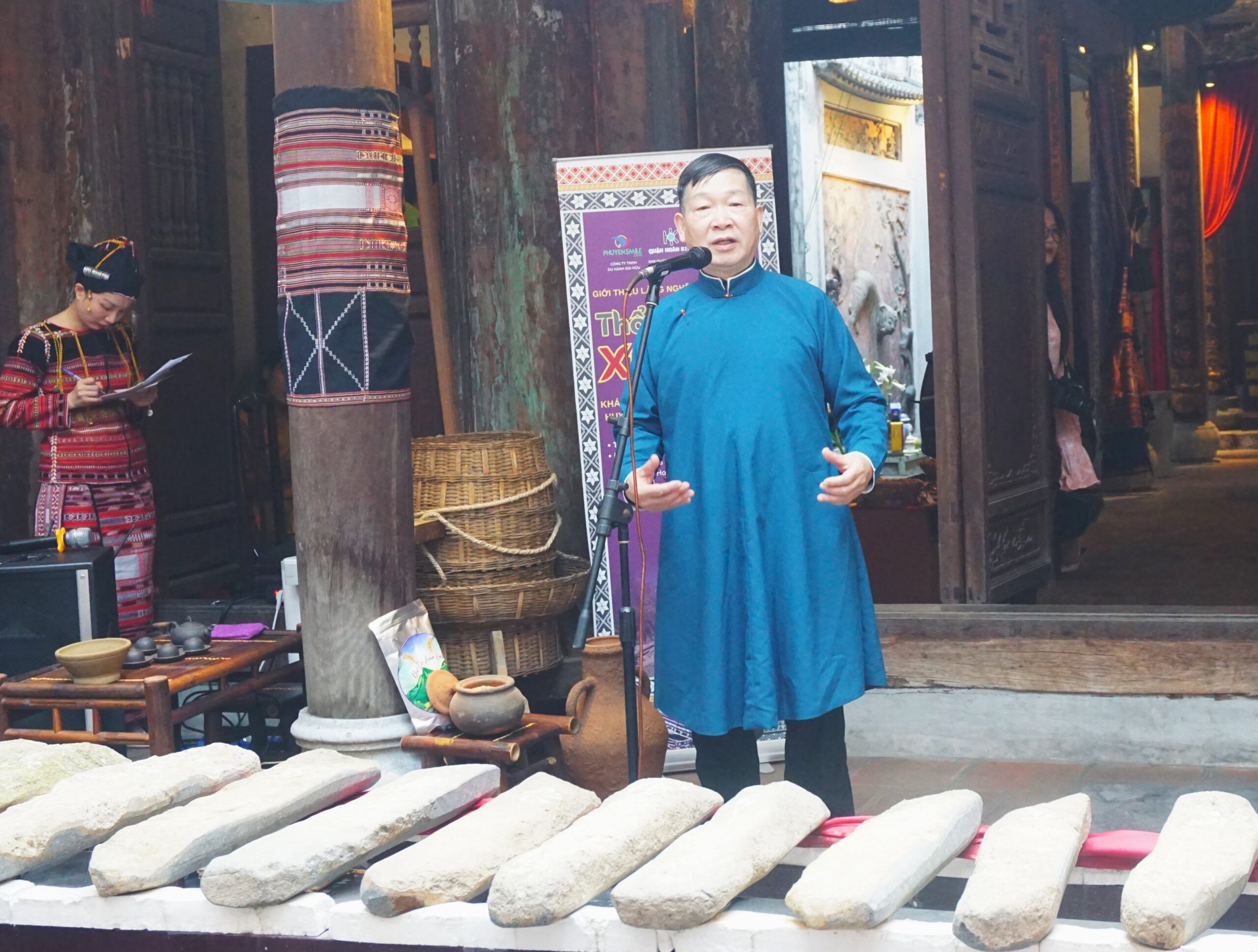
Dr.Tran Doan Lam, culture scholar, speaks at the opening ceremony.
Dr. Tran Doan Lam, a cultural researcher and Chairman of the Editorial Board of the Vietnam Studies Journal, spoke at the event, highlighting Xi Thoai brocade as an intangible cultural heritage of Phu Yen Province. He commended the craft’s distinctive patterns and motifs, which embody the ethnic identity of the Ba Na people, as well as the intricate techniques and craftsmanship involved in its creation.
Dr. Tran Doan Lam expressed his belief that the event in Hanoi, the “mirror reflecting the quintessence of the country’s regions” and a “national leader in heritage conservation and promotion,” would serve as an effective channel for promoting Phu Yen Province’s cultural and tourism products. He envisioned the event opening up new market opportunities for Xi Thoai brocade artisans and contributing to the future development of village tourism./.
19 doctors graduate from the second six-month course on basic rehabilitation
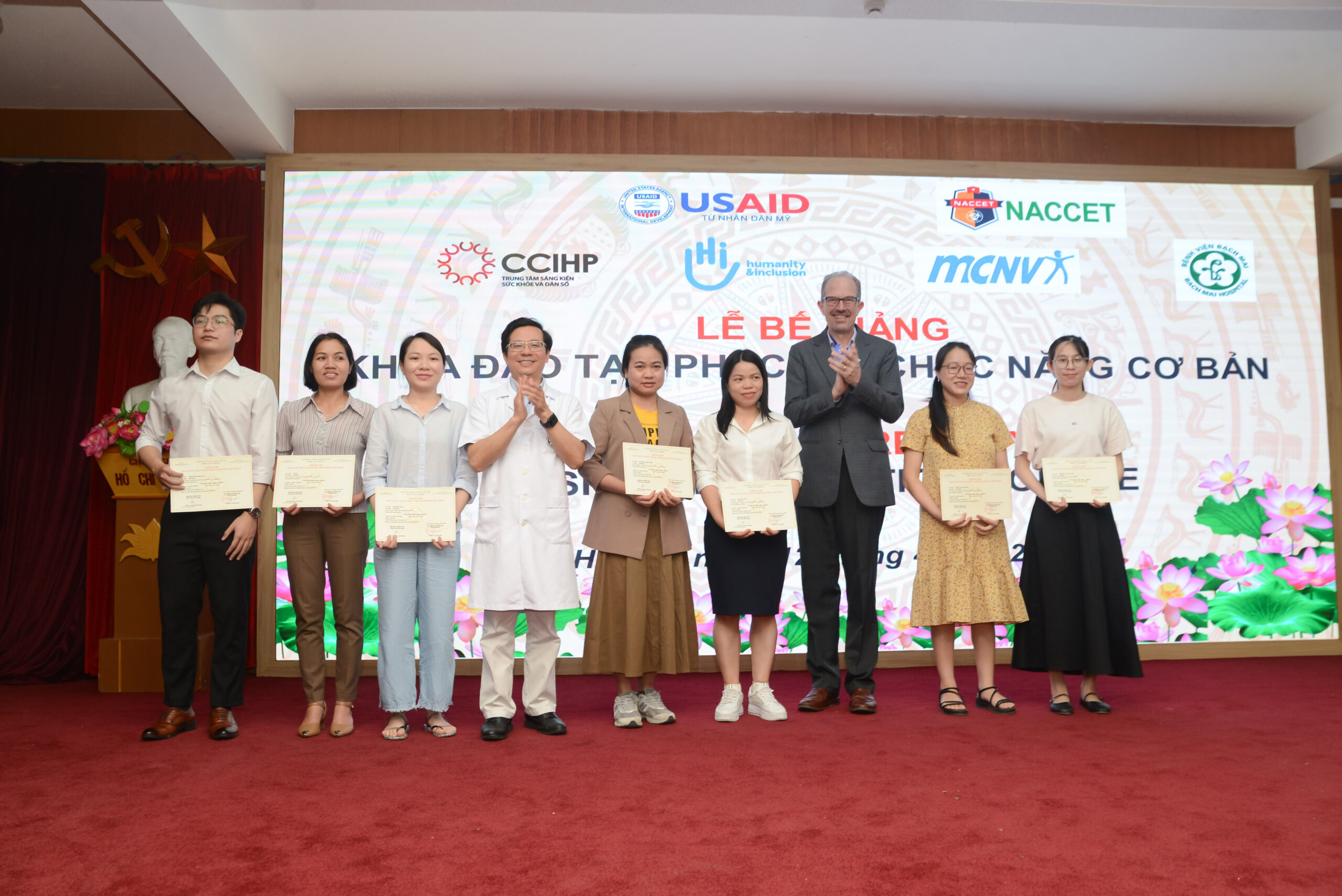
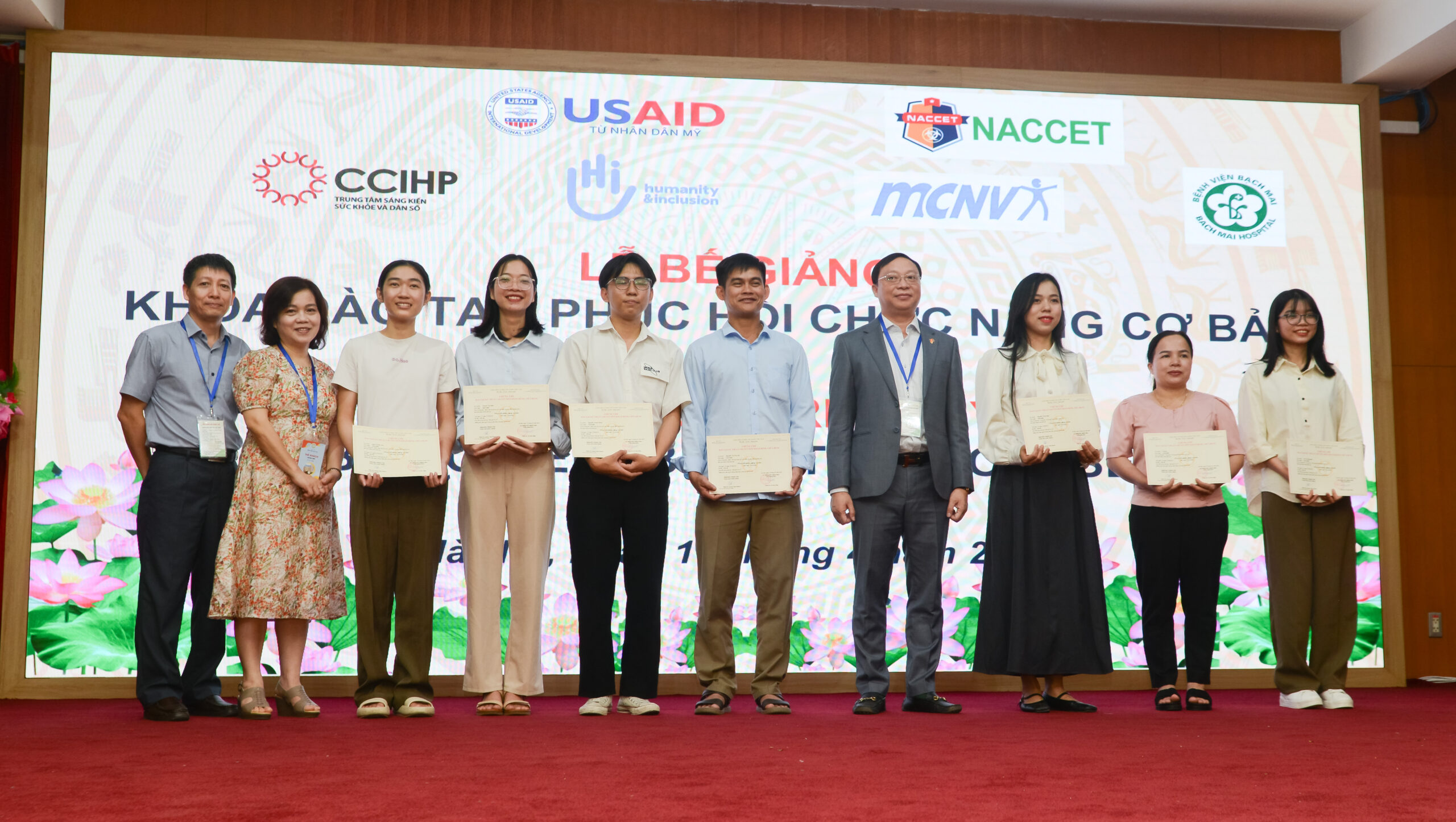
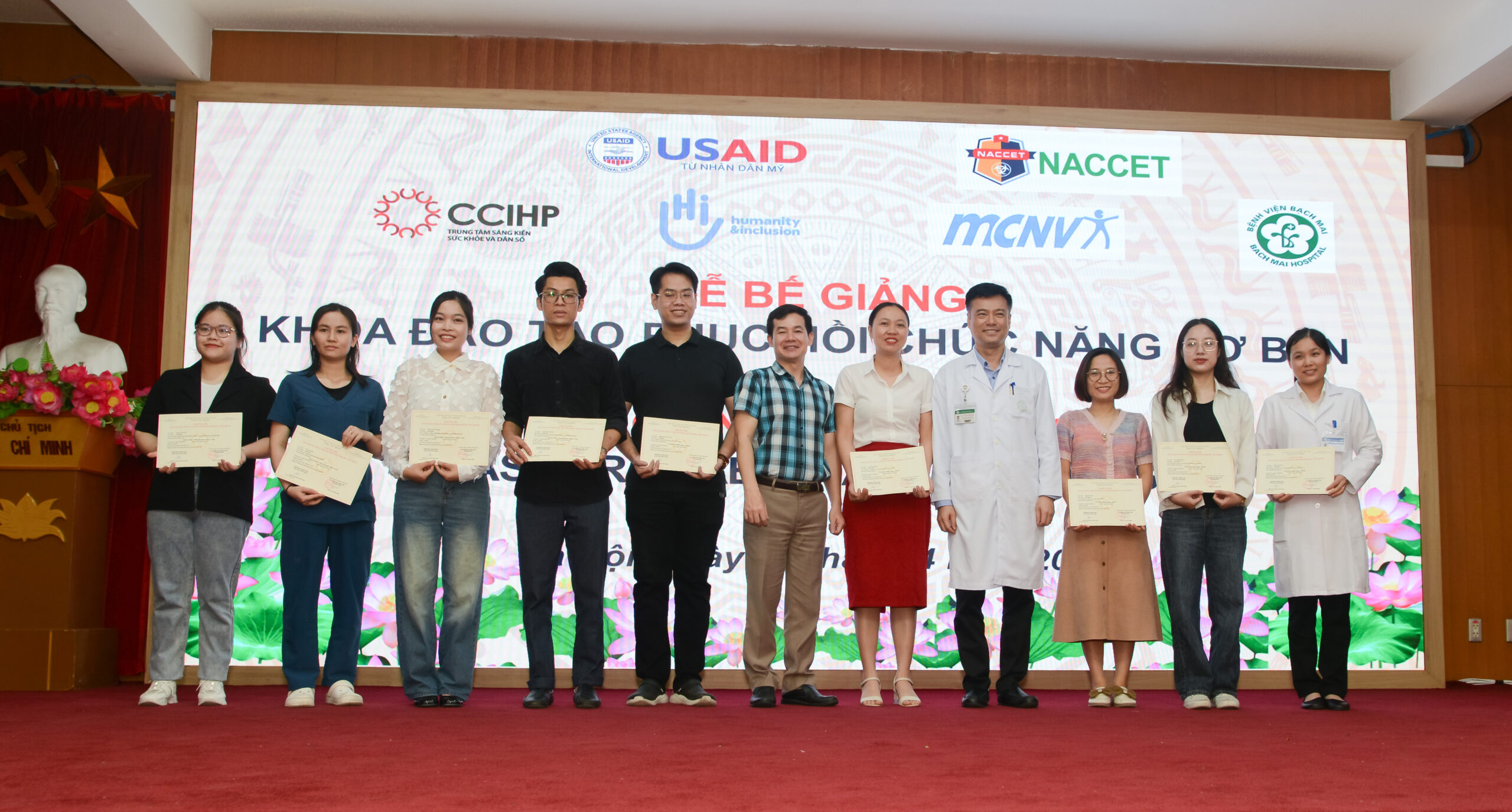

This is the second time MCNV has collaborated with Bach Mai Hospital to organize a 6-month training course on basic rehabilitation for doctors.

Assoc. Prof. Dr. Vu Van Giap, Deputy Director of Bach Mai Hospital, speaks at the event.
According to Assoc. Prof. Dr. Vu Van Giap, Deputy Director of Bach Mai Hospital, the increasingly effective collaboration between MCNV and Bach Mai Hospital will contribute to enhance technology transfer and knowledge sharing between Bach Mai Hospital and local healthcare facilities, not only in the North but also in the Central, Central Highlands, especially remote areas of Vietnam. The sharing of knowledge and skills will benefit patients and persons with disabilities in remote areas since they can get access to quality medical services right in their localities.
– Sponsor: United States Agency for International Development (USAID)
– Owner: National Action Center for Toxic Chemicals and Environmental Treatment (NACCET)
– Manager: CCIHP (Center for Creative Initiatives in Health and Population) and Humanity & Inclusion Vietnam
– Medical Committee Netherlands – Vietnam (MCNV) is one of the implementing partners for several objectives of the Project, including rehabilitation capacity building.
2024: Special school and multi-rehabilitation center in Binh Dinh
In 2000, MCNV worked for the first time in the Dak Lak province to establish a special school for children with disabilities. A great adventure that turned out very well. The school, essentially a multi-rehabilitation center, turned out to be a perfect fit with the province’s request for children with disabilities to go to school. Not only that, they could also live there and play and live together with other children. The children came from poor families and lived in more remote villages where there is nothing for children with disabilities.
The positive news spread and other provinces asked MCNV to help realise a multi-rehabilitation center. This is how three more were created. It turned out to be the solution for children who had never gone to school before. It was a starting point for them to gain a place in society. The Vietnamese provincial government sees the importance of these centers and supports them as much as possible.
2024: Special school and multi-rehabilitation center in Binh Dinh
Last year, the Hy Vong special school in Binh Dinh asked if we could help ‘transform’ the special school into a multi-rehabilitation center for children with severe sight and hearing impairment, where parents can also go for help and advice. Based on the experience and knowledge we have gained in other provinces, we can contribute to a better life for the children in Binh Dinh.
Give children the right education, in a nice place where they can play and learn!
Binh Dinh is a province on the south-central coast of Vietnam, with a population of 300,000. It is one of the provinces in Vietnam that were heavily bombarded by the US Air Force with the poisonous defoliant Agent Orange during the war. The consequences of this – misbirths and disabilities – are still visible. According to official figures, there are more than 3,000 children with disabilities in Binh Dinh.
One of the most effective approaches to reducing the impact of Agent Orange is to focus assistance on services, such as health, education and social services, that aim to improve the quality of life of children and adults with disabilities to improve.
It’s possible in Binh Dinh!
Every year, Hy Vong School receives 160 to 180 children with disabilities between the ages of six and 16 from across the province. MCNV has been supporting children, teachers and parents for several years to ensure that children learn to read and write and can play with peers. Exchanging experiences is very important for parents so that they feel less alone and can learn from each other how to deal with daily care. They also learn to deal with the stigmas that make their children’s lives more difficult. Since September last year, visually impaired and blind children have also been welcome at the school.
Taking a big step forward
Providing care and education to such a large number of children with disabilities is a difficult task for teachers, caregivers and the school director. As in other provinces in Vietnam, most children come from poor families. The circumstances in which they live leave little room to devote attention and money to health and education. In addition, the provincial government does not have sufficient resources to invest in the school. Another point of attention is the poor condition and lack of all kinds of teaching materials and equipment. In order to achieve positive results, the school wants (and must) make a significant step forward in terms of quality.
The Hy Vong school has asked MCNV to help make this step. This concerns:
- Creating specific care for the children so that they can actually follow their education;
- Improving the knowledge and skills of management and teachers to provide ‘tailor-made’ care and education to children with disabilities;
- Improving the knowledge and skills of teachers in regular schools in the areas of early detection, early intervention and inclusive education for children with disabilities;
- Cooperation and coordination between special schools and regular education in Binh Dinh so that children with disabilities can also attend regular schools.
What is needed for this?
- Learning aids, such as Braille books for blind children and visual learning aids for children with hearing and intellectual disabilities;
- Meals for the children.
- Continuing training for teachers, employees and management.
- Advanced training for teachers in regular schools in the field of dealing with children with disabilities.
- Transforming Hy Vong Special School into a multi-rehabilitation center so that more children with disabilities and their parents can receive support.
Price Waterhouse Cooper-Vietnam (PWC) has financially supported the school until 2023. There is still some money left, but it is not enough to continue the activities in 2024 and 2025. That is why we ask you to contribute to the step that the Hy Vong school wants to take.
Thank you in advance for your (extra) donation.
Warm greetings from Hanoi,
Nguyễn Thị Thanh Thủy
MCNV program coordinator and educational expert



